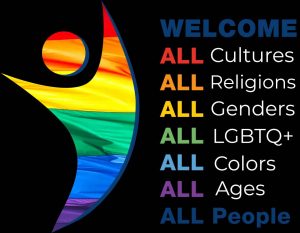Grief is deeply personal; it is a powerful experience that can be difficult to explain to someone who has not experienced it firsthand. It is more than sadness or unhappiness; it is unique and painful because it comes from losing someone close to you. The loss may be a sudden death, the end of a long-term relationship, incarceration of a loved one, or an experience with a terminal illness. It is even possible to experience grief from long-term social distancing and being alone during COVID-19. While your experience of grief is unique, there are recognizable stages and emotions that everyone may experience. Understanding these stages can help you work through your mourning and maintain a positive outlook as you move forward, even while recognizing loss. To quote the author Leo Tolstoy, “only people who are capable of loving strongly can also suffer great sorrow, but this same necessity of loving serves to counteract their grief and heals them.” Working through grief is not forcing yourself to be happy or forgetting about your loss; it is the process of accepting that someone is no longer with you while simultaneously finding opportunity and hope in the future.
The five stages of grief are a model first developed by psychiatrist Elisabeth Kübler-Ross in 1969. You may have heard of these stages before, usually presented in the order: denial, anger, bargaining, depression, acceptance. While these stages are universal, not everyone will experience all five, nor will everyone experience them in the same order. You may start your grieving process with depression before denial; you might experience anger for a few days and then move on to bargaining for weeks or months. It is possible to work through bereavement and mourning over several years. Here are the five stages identified by Kübler-Ross; understanding each one can help you process your own emotions or engage with friends or family who are grieving.
Denial
Grief can be overpowering; it can be so intense that you might not be able to process it. Denial is a defense mechanism that gives you time to gradually come to terms with your emotions and understand what is happening. You might tell yourself, “we just had a bad argument, that’s all; they’ll call soon so we can work it all out tomorrow,” after a bad breakup; or “they can’t be gone, it’s the wrong person, they’ll walk through the door any second” after the death of a loved one. Denial can lead to isolation, cutting yourself off from realities that remind you of what happened. For instance, you might avoid calls or visits from friends who want to give you condolences. Isolation can make life feel meaningless and paralyze you, preventing you from moving forward. Recognize that denial is a normal part of mourning while also learning to express your grief with others, whether they be friends, a support group, or a therapist.
Denial can help cushion the blow of bad news and numb the initial pain of a loss. Therefore, denial is often represented as the first stage, though it does not have to be. It can take time to process what has happened but working through denial requires facing painful, repressed emotions. These emotions may surface in another stage, such as anger.
Anger
When you confront your loss, you may experience many different emotions at once: sadness, nostalgia, confusion, and more. Anger is just one emotion that you may experience, but it tends to take control and mask other feelings. Anger allows you to be emotional without working through your feelings with others or accepting your loss; it directs emotions away from yourself towards other people or things. After losing a job, you might tell yourself “that place was always horrible to work for; they deserve to fail and were totally unfair.” A death or a terminal diagnosis might make you say, “why am I being punished for this? God shouldn’t let this happen to me, it’s not right!” or “the doctor messed up and stole everything from me!” You may take your anger out on inanimate objects or become aggressive due to otherwise small problems like your computer freezing up or misplacing your keys.
Anger is a normal emotion to experience after a loss, but it is not the only emotion. Expressing only anger can thrust your pain onto others whom you care about, even towards those that you have lost. It is okay to express anger, but you should strive to do so without harming or accusing others—write out your thoughts, express your feelings in conversation with those you trust, or even let out a scream someplace away from others. As you work with your anger, you can engage with a wider variety of emotions and begin to think through your pain and grief rationally.
Bargaining
Grief can make you feel vulnerable, exposed, or helpless. A sudden loss emphasizes how easily things can change and might make you feel as though you have no control. Bargaining is an attempt to regain that feeling of control by constructing “if only” or “what if” statements. Bargaining leads to thoughts such as, “if only I had told her not to go out that night,” “if only I was more honest with him,” “what if I pray hard enough and change my behavior, will that change things?” These statements might be something that you tell yourself or promise to a higher power. You may even attempt to bargain directly with a partner who broke up with you or a family member who is terminally ill.
Sometimes a loss might help you identify behaviors that you wish to change or take away lessons for the future. Bargaining, however, is not about understanding yourself or your relationships, but a way of imagining how the world will “fix” itself if you find the right solution. When these solutions fail, they often lead to guilt and further feelings of helplessness. When you begin to come up with “if only” or “what if” stories, share them with those you trust—this might be a friend, family member, spiritual advisor, or therapist. Remember that bargaining is a normal experience, and talking with others can help you think less about changing the past and focus on what you can do to embrace a more hopeful future. Instead of “what can I do to change what happened?” sharing your thoughts can help you ask, “what can I do to accept the present and look forward to my future?”
Depression
Sadness can appear in every stage of the grieving process, but sometimes deep, long-lasting sadness can be a stage of its own. This stage is depression, and it occurs when you recognize the reality of your situation—no longer denying the truth or pushing away emotions—but can only feel pain from the loss.
There are two types of depression that you may experience while mourning. The first kind is the reaction to the loss itself—worrying about funeral arrangements, fearing that you will lose other relationships and loved ones, being overwhelmed while completing daily routines. The second kind of depression comes from preparing to accept your loss and say “goodbye.”
Depression can lead to solitude or ongoing fatigue; it is best to seek reassurance and support when you feel overwhelmed and in pain. Some people find antidepressants helpful, but medication is not a solution on its own. It is good to accept that depression is a real and normal response to a painful loss, and you should never feel rushed to overcome your sadness. However, if depression is inhibiting your ability to function, you should seek out a mental health professional who can help you work through this stage. Even if you are comfortable working through this stage at your own pace, you should seek help if you feel like you are stuck.
Acceptance
Not everyone reaches this stage of the grieving process. Some people continue to experience the stages of denial, anger, or depression from a loss indefinitely, especially if that loss is very sudden and unexpected. Acceptance is not equivalent to happiness, nor does it deny the pain of a loss. In this stage, you find meaning in what you have experienced and situate it as one moment in your ongoing life. This moment of loss may lead to changes in your relationships or your behavior, but these are thought-out life decisions made after you have accepted what happened. These changes are not attempts to impose control over the world around you or to escape from reality. You can say, “this was hard, I might never feel good about what happened, but I can move forward with hope for the future,” or “there are always going to be painful moments, but there will also be beautiful and joyous moments, and I am fortunate to share and learn from these moments with others that I care about.” You may continue to experience pain, sadness, or frustration due to your loss, but you will also experience calm and a certainty that you can move forward with hope.
Your Grief is Unique
Everybody experiences the grieving process in their own way at their own pace. At every stage, you should recognize that you are experiencing a normal reaction to loss and that you process grief on your own schedule. You might encounter the same stage multiple times, and that is alright.
Therapy can assist you while you work with your grief; it can provide a safe space where you can express your feelings and thoughts without judgment. Interacting with friends or family can be painful if they are also dealing with loss, or they may accidentally hurt you with statements like, “it is time for you to move on and get over this.” A therapist can help you find ways to communicate with your loved ones and find support. Therapy may also provide other tools and frameworks to assist with vulnerability, romantic relationships, trauma, and more that can help you work through your stages of grief at your own pace.












